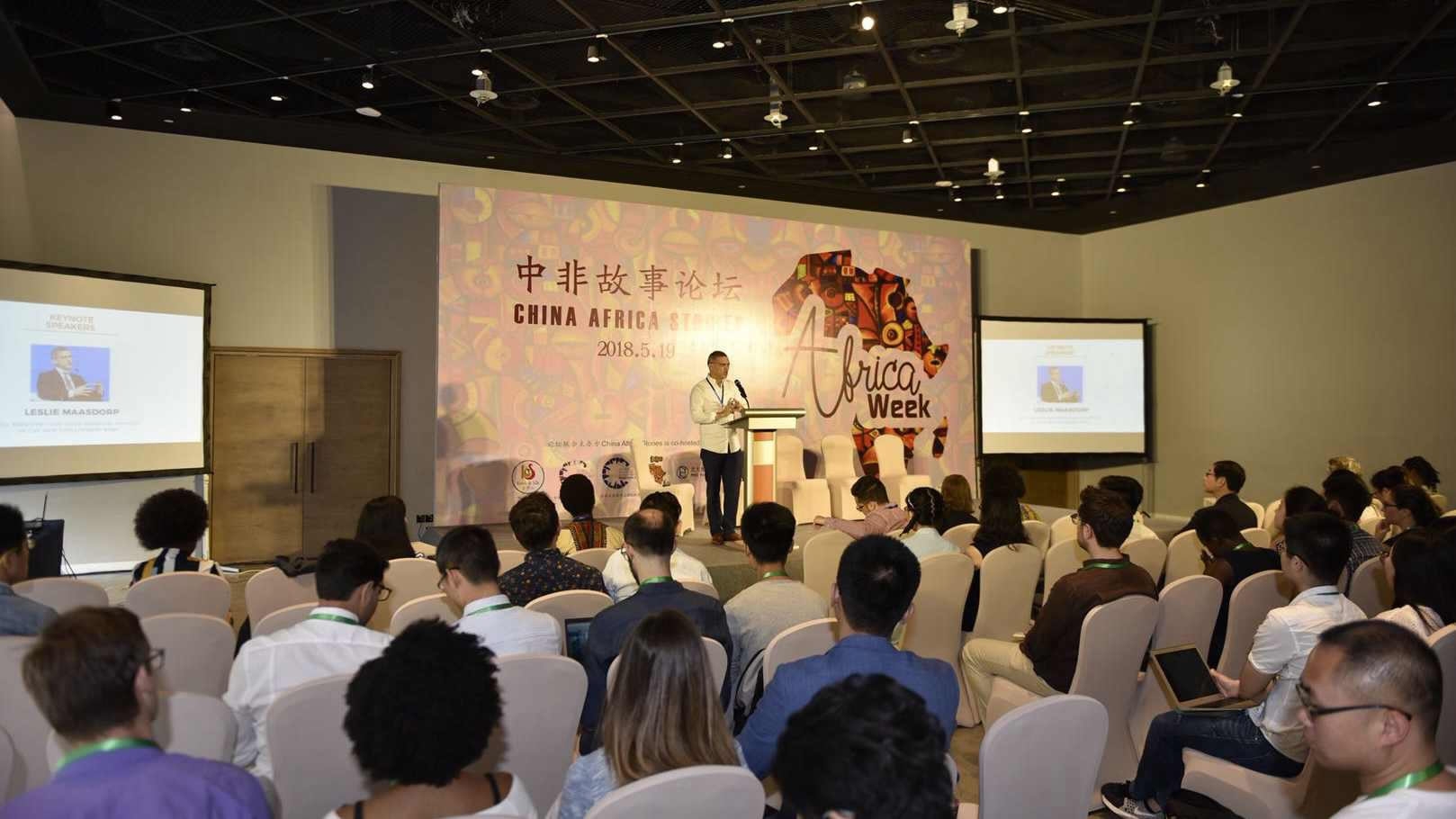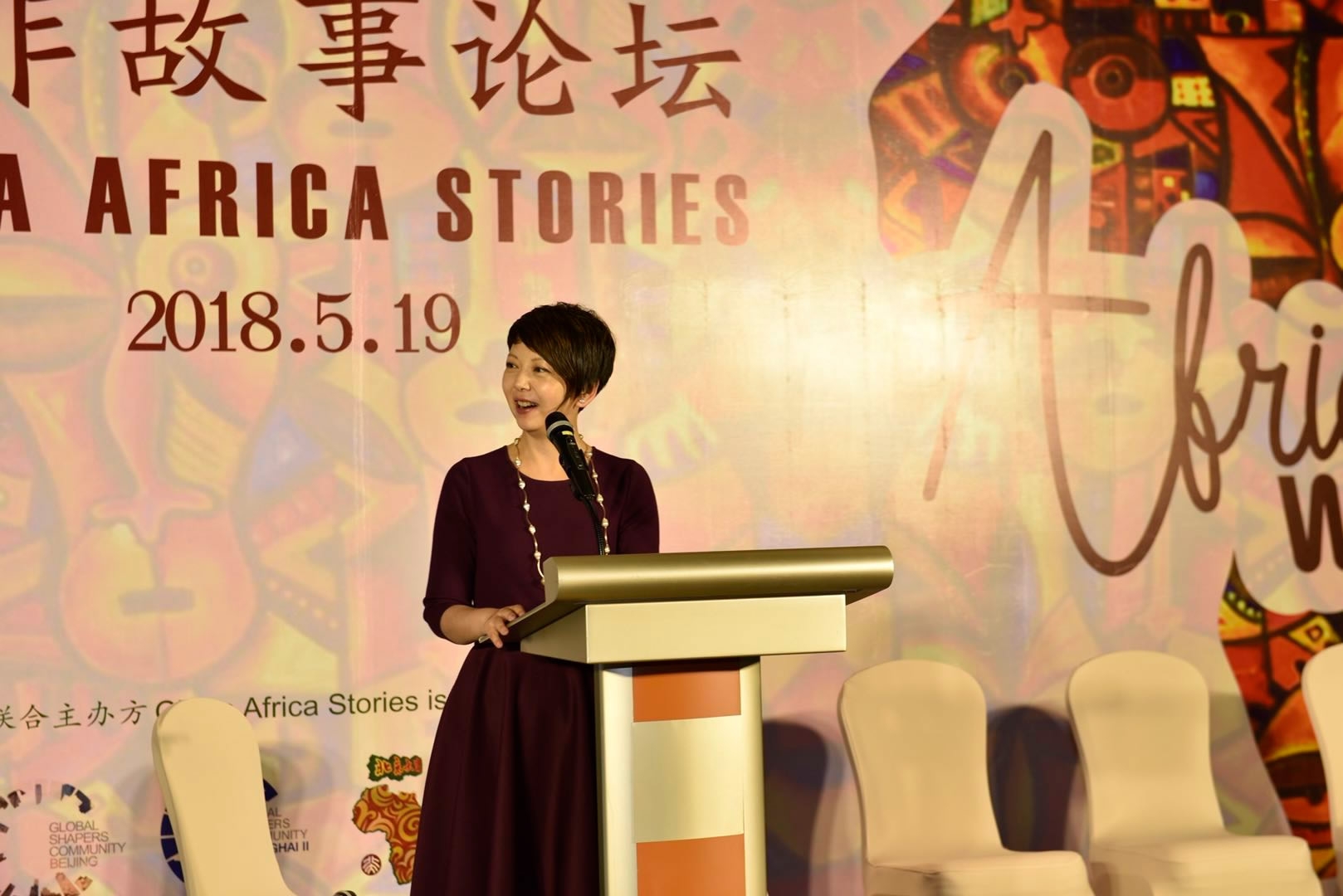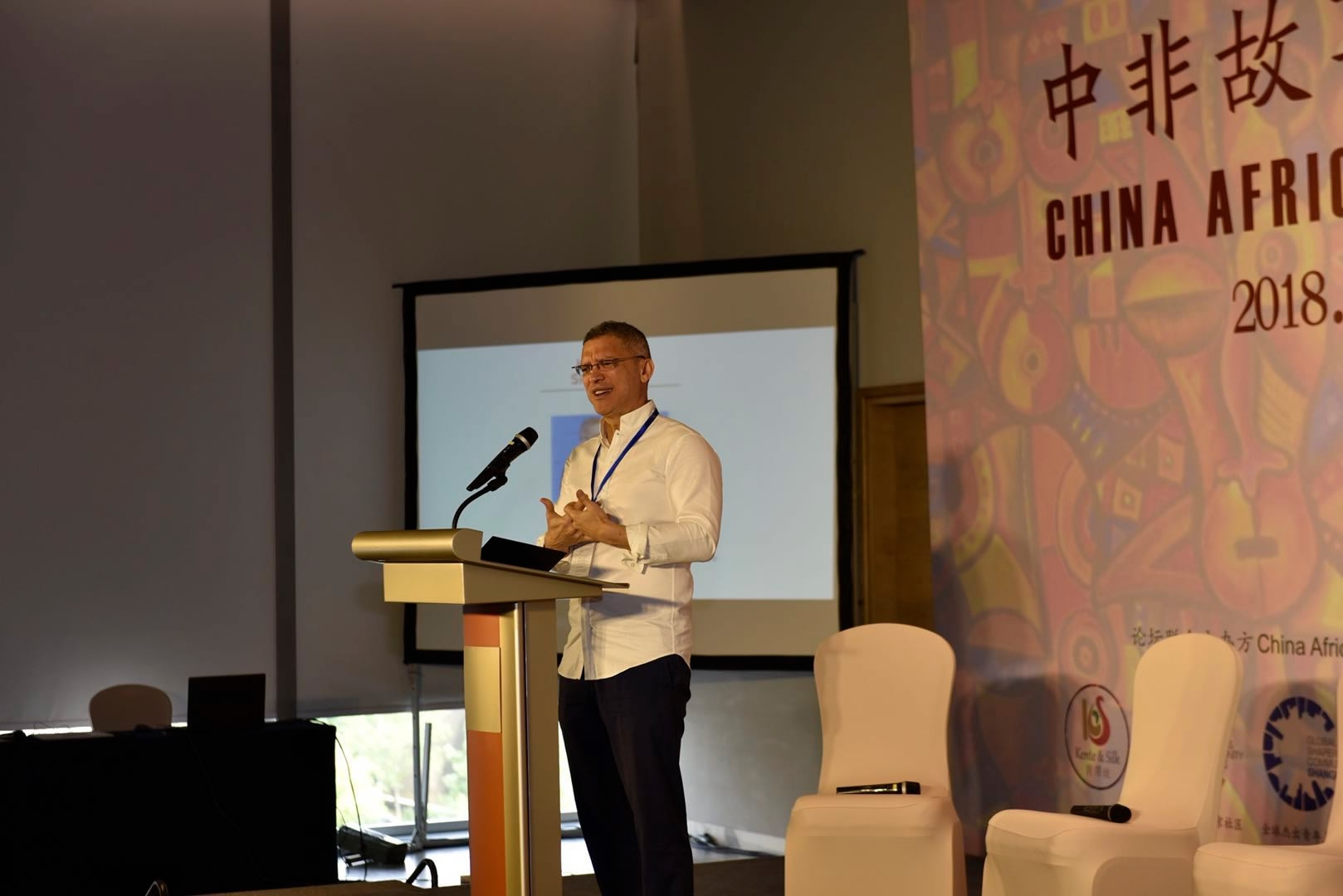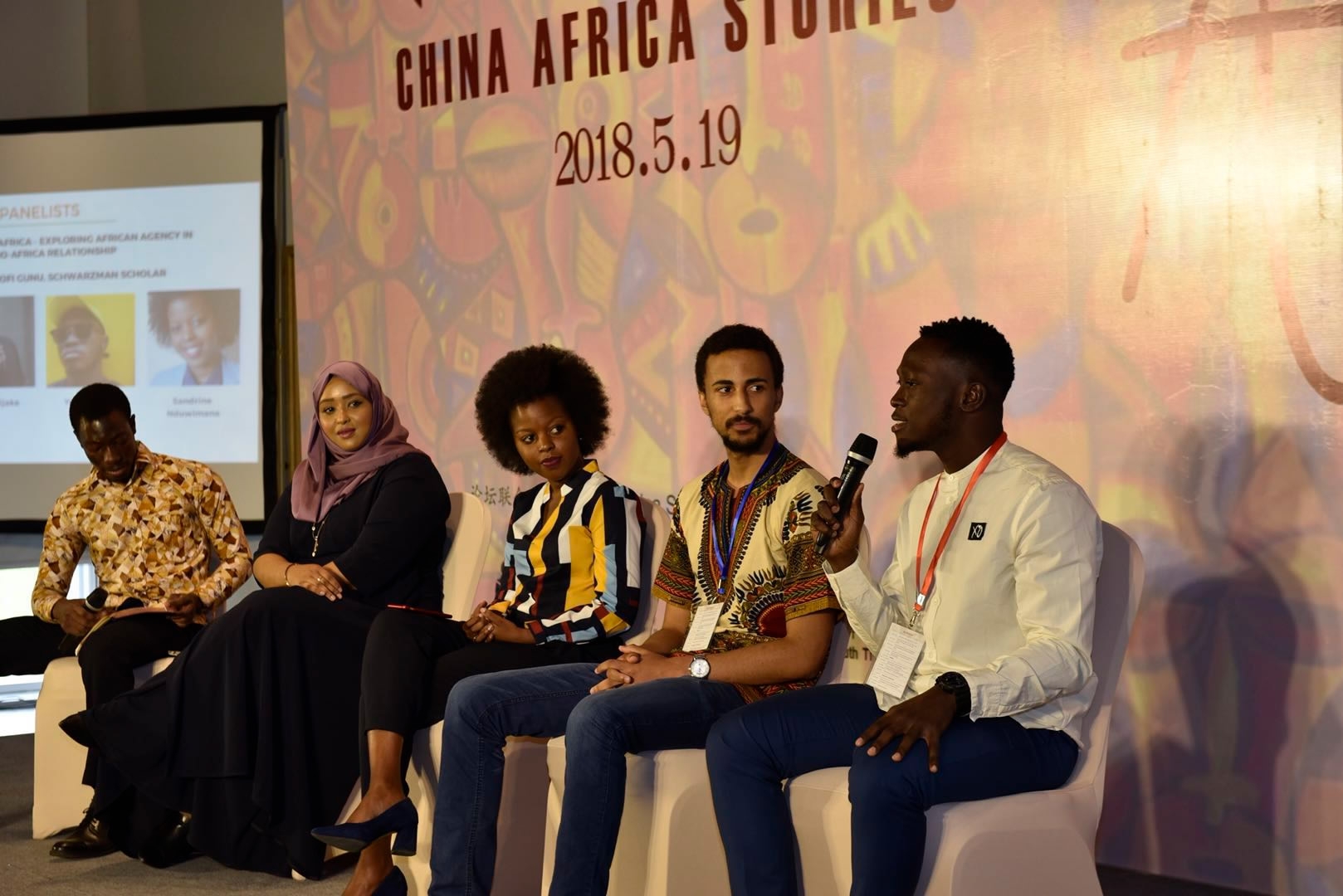A panel, named “China Africa stories – a new chapter of youth engagement”, was held on Saturday in Beijing, with panelists mainly from African countries, most of whom youth, sharing their stories of studying or working in China.

The panel, which falls on the second day of “Africa Week”, is followed by workshops, start-up competitions and art shows. The purpose, as organizers put it, is to decrease the information gap between China and African countries and to “counter” stereotypes some Western media has shaped about China-Africa relations.
In the opening remarks made by Tian Wei, a well-known host with CGTN, she shared her experience of interviewing leaders from some African countries and also her interaction with one of the Chinese peacekeepers in Africa.

Tian Wei, a well-known host with CGTN, speaks at the opening ceremony. (Photos courtesy of Kente & Silk)
“The soldier keeps on sharing photos of a big tree in the compound he stays in on his Wechat circle, showing different looks of the tree in different time,” Tian used this example to tell participants the limited choice for a Chinese soldier in his spare time.
“We need more of this kind of dialogue among young people, especially young people who show strong interest in what’s happening in society,” said Leslie Maasdorp, vice president and chief financial officer of the New Development Bank, in his keynote speech.
Leslie recalled his experience after leaving university and people who shaped his ideas at that time.

From the view of Dr. Hodan Osman Abdi, research fellow with the Institute of African Studies at Zhejiang Normal University, the image of Africa in media is limited.
Dr. Hodan Osman Abdi has stayed in China for over 10 years. She is the co-director of a documentary “Africans in Yiwu”, depicting lives of the African community in one of China’s most popular business hubs.
Her Chinese friends used to ask frequently whether she has hair underneath her scarf.
Dr. Hodan Osman Abdi is a Muslim.
The question reflects stereotypes shaped by media, and she is not the only one facing this situation.
“Is everyone from Africa good at dancing?” is a question frequently raised to Yoofi Greene, a professional Afrobeats dancer and instructor in Guangzhou, capital of south China’s Guangdong Province.

Yoofi Greene (1st from the right) shares his story in China.
Yoofi is also a college student majoring in economics. “Let me use dancing to teach my Chinese friends more about Africa, a real Africa,” said Yoofi, who started dancing when he was little.
In the eyes of Hannah Ryder, a former diplomat and founder of Development Reimagined, it’s time for China-Africa relations to become mature.
“As an adult, you should be able to understand issues, have to get your own path. Lots of responsibilities are there and the expectation is that you can cope with that,” said Hannah, referring to the 18-year-old FOCAC (the Forum on China–Africa Cooperation).
Besides Africans telling stories of studying or working in China, panelists from China also shared experience of setting up platforms for Africans doing business in China and providing medical services in Africa.
The panel is jointly organized by Kente & Silk, Global Shapers Community Beijing Hub and PKU Youth Think Tank.


